THE COUNT BASIE ORCHESTRA * “Have A Nice Day” * Daybreak Records (US; 1971)
![]()
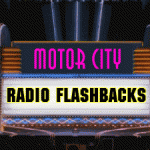 From the MCRFB news archive: 1966
From the MCRFB news archive: 1966
Record Industry Crown McCarthy Detroit Top Air Personality
DETROIT — J. P. McCarthy of WJR is the king of the air personalities in Detroit, according to the record industry. McCarthy received 52 per cent of the votes of record dealers, distributors, one-stop operators, and local and national record company executives as being the major influence on album sales. They also attributed McCarthy with having vast influence in creating sales of Easy Listening singles.
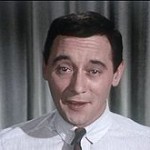
James H. Quello, program director of the Easy Listening format station, said that McCarthy “seems to be able to pick them. He practically made Herb Alpert and the Tijuana Brass in Detroit.” A lot of the credit too, should go to music director Harold Lake, Quello said.
“We try to play the bright new beats that aren’t rock,” Quello said. . . .try to be cheerful and entertain and be sensible. McCarthy practically dominates all morning ratings because of his warm personality and the fact he keeps his show interesting. For instance, he has little gimmicks called winners and losers — sort of comments about topical matters. He also plays novelty records.”
WJR also scored as the major influence on classical record sales with 55 per cent of the votes. The programming of WJR has given the station tremendous billings. “Business in sales within the last year in a half has been absolutely fantastic,” Quello said. “We’ve definitely proved that there’s room in a market for all kinds of music — country music, our music, or rock ‘n’ roll.”
(Information and news source: Billboard; July 2, 1966).
![]()
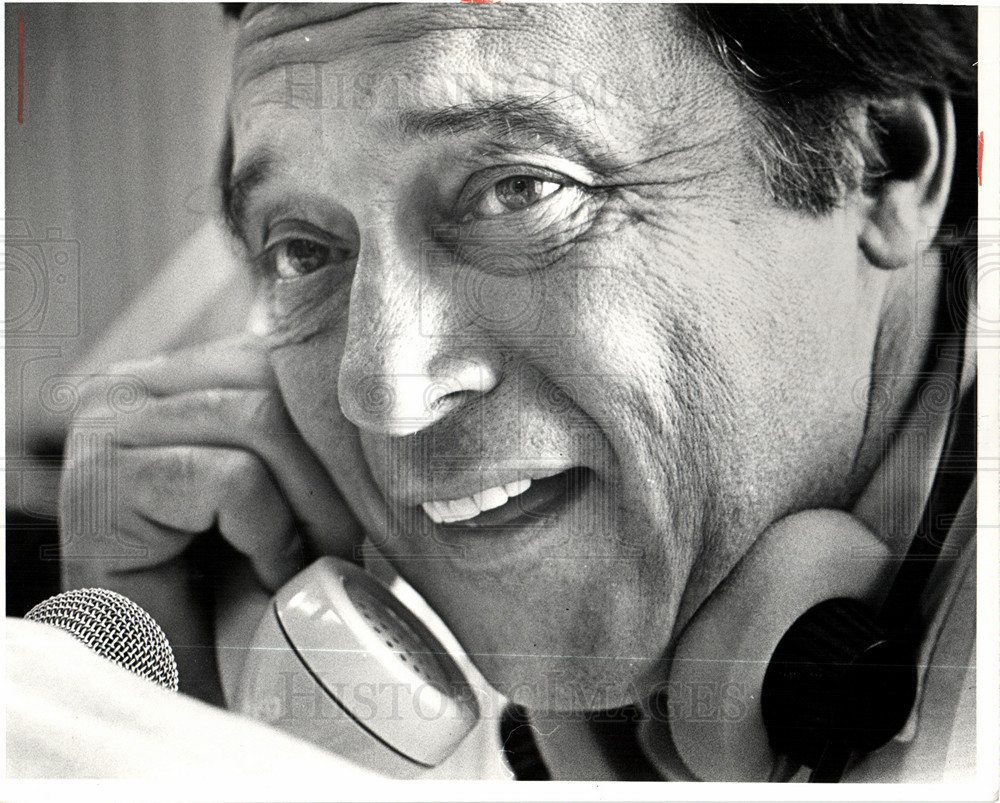
![]()
MCRFB note: Michael Patrick Shiels was the long-time producer for WJR Detroit’s legendary radio host, J.P. McCarthy. While on WJIM, Lansing, Michael Patrick paid homage to his radio hero/mentor J. P. McCartney on his program every August 16, which marked the day of the legendary WJR broadcaster’s passing back in 1995.
![]()
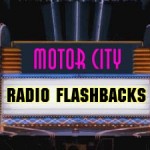 NEW! Added to the MCRFB archive:
NEW! Added to the MCRFB archive:
The Detroit Magazine, December 4, 1966
“Hello! Yeah, Bill. Bill, I’ll tell you what, the way the schedule is going, I just don’t see how I’ll be able to do it. Oh boy, I’m up to my ears, Bill. The idea sounded like it had a lot of appeal a few months ago, but I wasn’t busy a few months ago! Yeah, I’m very busy, and there’s no point in me kidding you about it. I’m very flattered you’re interested, but I think I’d better pass on it. Fine, Bill. Good to talk to you!”
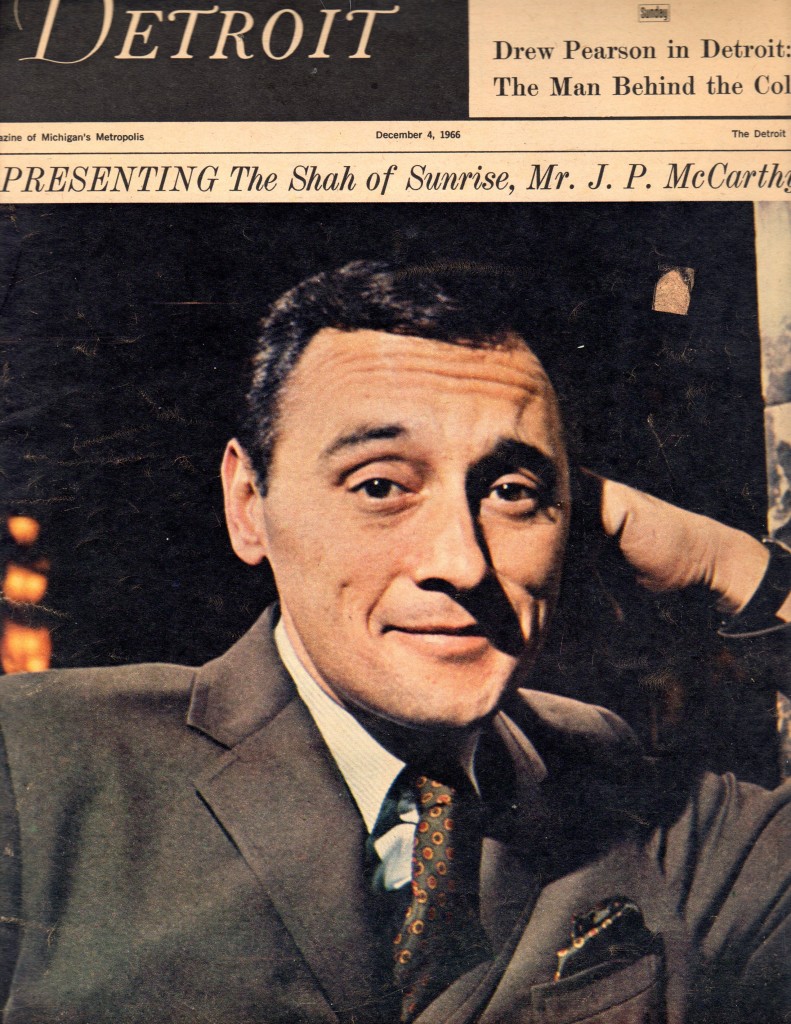
“Helen, get us some coffee, huh?” J. P. McCarthy leaned back in a swivel chair jammed into one corner of his cluttered office in WJR’s Golden Tower of the Fisher Building.
“Well, how serious can you get about a disc jockey program? I don’t even like the word disc jockey, but that’s what I am. I play records and talk to people, and I don’t think you can take yourself seriously when you’re doing something like that. I’d much rather be president of General Motors, or a neurosurgeon, but my hands aren’t steady enough.”
McCarthy (his friends call him Joe) laughed and said, “I guess I’d like to be a singer, but you know! I kinda sing on the air, after a fashion. Bill Kennedy says it makes him sick. I can drive cows out of their minds. Dogs are supposed to actually cover their ears with their paws when I sing! I’m gonna play my record tomorrow — ‘When Flying Tigers Play!’ I made it last year. Do you want to hear it? I’ll play it for you now if you really want to hear it, but not many people do!
“If I had my choice? I’d like to be president of General Motors. Yes, I’d like that a lot!”
Human nature being what it is, the president of General Motors might likely be only too happy to trade places with Joseph Priestly McCartney, WJR disc jockey, MC of the ‘Focus’ show, voice of numerous radio and television commercials, and star of a projected daytime TV interview show. It’s questionable, though, whether the president of General Motors would stand the gaff, and as for McCarthy’s being a neurosurgeon, well, medicine’s loss is the radio listener’s gain.
McCarthy’s voice, trained to be rich and resonant, is the commodity he markets with marked success. He’s the voice of The Great Voice of the Great Lakes, and he exudes Good Will. To the 21-and-up age segment of the radio listening public, J. P. McCarthy is the perfect image: Not way out, but buoyantly on top of the world; not a hipster, but “In”; not a clown, but playful; not brazen, but breezy.
Jockeying records, reporting on the conditions of”our beloved ditches,” his voice registers cynicism, delight, boredom, brashness, fatalism, impertinence, sophistication, world-weariness — a bagful of emotions and attitudes that his listeners may privately share but rarely publicly express.
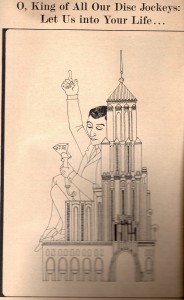
When McCarthy starts off his early morning “Music Hall” record show with the flip-remark: “Okay. Let’s get this turkey on the road!” early risers feel a little glow of ‘what-the-hellism’ beginning to warm the prospect of the day ahead.
McCarthy tosses commercials, platters, sports reports and weather news about his head with the competence and confidence of a four-armed, hind-sighted juggler. Businessmen who tune in are made to feel that here’s someone who can thumb his nose at convention and be his own boss. McCarthy’s young-mature listeners identify with his smoothness, his air of “in.”
They can quote J. P. ‘s ‘Winner Of The Day,’ sometime sympathize with his Loser of the Day. They always that though their own 9-to-5 existence may dissolve into drabness when the office floor or the kitchen door closes behind them, J. P.McCartney, their friend, will go through the rest of the day — and probably half the night — smiling, ridiculing, joke cracking; urbane and sophisticated; impervious to dullness, to mediocrity.
“Dr. Smith (Helen, could we have more coffee?) J. P. McCartney. Of the ‘Focus’ show on WJR. Doctor, I wanted to know if you could spare the time to come up here and talk about LSD some day. I’d really appreciate it.I think the maximum would be 12 to 15 minutes. Well, why don’t we do a program on it at your convenience? You set a date and we’ll devote as much time as we can to talking about it. Thank you. Good to talk to you.”
He has, in addition to “Focus,” the 6 to 9 morning “Music Hall.” Jimmy Launce, formerly on “Focus,” took over the afternoon “Music Hall” last spring.
“The idea,” McCarthy said, “was to give me more free time in the afternoons, but it hasn’t exactly worked out that way. A couple of weeks ago I flew out to the coast to make a pilot film for a national daytime television interview show. If it goes, it’ll be great. It’ll be fun. But I can’t . . . I’m not allowing myself to get excited, because I suppose for every 50 pilot films, one makes it. But they seem pretty excited. The nicest thing about it is that if it goes, I won’t have to leave here, because we do all our shooting on weekends on the coast. It would mean I’d be commuting.”
McCarthy already has a schedule that would give the president of General Motors pause.
By 9 in the morning, when most businessmen are just checking into the office, McCarthy has already put in three hours on his record show. He breakfasts on the run, and spends a good part of the late morning lining up records, interviews and reports for the next day’s session at the turntable.
Around 11 a.m. each day, the “Focus” producer comes in for a rundown on the day’s show.
Producer: Let’s go over the lineup for today’s show, Joe.
McCarthy: Good! Want some coffee? Who’s on today, anyway? I don’t even know who’s going to be here!
Producer: We’re having a manufacturer’s rep, who’s goin to explain what he does,and talk about business ethics.
McCarthy: That’ll be something! Business ethics. Any body else?
— Audra Hendrickson
_______________________________________________________________________________________
Audra Hendrickson lives in Bloomfield Hills and is an occasional contributor to DETROIT magazine. (DETROIT magazine; December 4, 1966)
_______________________________________________________________________________________
Addendum: Motor City Radio Flashbacks would like to extend special thanks to our website contributor James Heddle for providing us this special J. P. McCarthy article. From the James Heddle Collection.
![]()
http://www.youtube.com/watch?v=BxswozcNZnw
MCRFB note: This film promo, presented here in three installments, was produced by the WJR radio sales department exclusively for advertisers in 1966. The film was introduced by famed radio news broadcaster Lowell Thomas. Film narrative by J. P. McCarthy. (Also, you may view the entire 22 minute film, uninterrupted, in the bottom frame).
![]()
HOOPER RADIO RATINGS REPORT MARCH/APRIL 1970
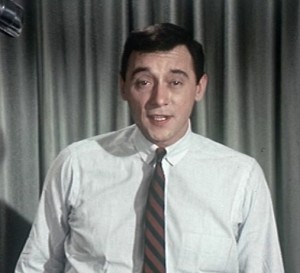
DETROIT — The March/April Hooper has these total rated time figures: CKLW 19.4; WJR 12.2; WWJ 10.2. It’s to early to tell what WKNR will do, but in this rating WABX-FM has a 6 between 7-11 p.m. Sunday through Saturday, while WKNR had a 4.4. As for WCAR, which is the Ken Draper-consulted station, it’s still pretty far back, except for being second each Sunday during midday. WDEE is already fairly far ahead of WEXL, it’s new Detroit country competition. But the market seems to belong for the moment to Paul Drew, program director of CKLW, except when J.P. McCarthy is on the air mornings over at WJR. McCarthy has a 20.9 in the morning slot over CKLW, who holds a very close second during that same time-frame at 20.1. McCarthy is undoubtedly one of the best morning air personalities anywhere because there are few men indeed who could beat the Drake-consulted formula anywhere in the RKO radio chain. McCarthy, incidentally, is one of the speakers slated to make a presentation at the Billboard Radio Programming Forum to be held at the Waldorf-Astoria Hotel June 18 – 20 in New York. END.
(Information and news source: Billboard; June 6, 1970).
![]()
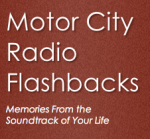 From the MCRFB NEWS archive: 1971
From the MCRFB NEWS archive: 1971
J. P. McCARTHY NO. 1 IN MORNINGS; WDEE NO. 3 IN DETROIT: PULSE REPORT APRIL/JUNE 1971
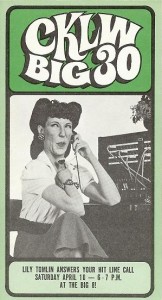 DETROIT — Country music seems to be doing well in Detroit where WDEE is third in the market 6 A.M. through midnight in the April/June Pulse. CKLW and the Paul Drew pack is No. 1 with 19, WJR comes in with a 17 and nobody touches J. P. McCarthy in the mornings: this guy has a 21 from 6-10. Across the board, WDEE, programmed by John Mazur, has a 7, 8, 6, and 3 (through hours 6-10 A.M.) Breaking the other stations down CKLW has 17, 20, 21 and 14. WABX-FM has 2, 3, 4, 6. WKNR has 3, 3, 6, 5. WRIF-FM has 0, 1, 2, 3. WCHB was pulsed with 4, 4, 5, 10. END
DETROIT — Country music seems to be doing well in Detroit where WDEE is third in the market 6 A.M. through midnight in the April/June Pulse. CKLW and the Paul Drew pack is No. 1 with 19, WJR comes in with a 17 and nobody touches J. P. McCarthy in the mornings: this guy has a 21 from 6-10. Across the board, WDEE, programmed by John Mazur, has a 7, 8, 6, and 3 (through hours 6-10 A.M.) Breaking the other stations down CKLW has 17, 20, 21 and 14. WABX-FM has 2, 3, 4, 6. WKNR has 3, 3, 6, 5. WRIF-FM has 0, 1, 2, 3. WCHB was pulsed with 4, 4, 5, 10. END
___
(Information and news source: Billboard; September 18, 1971)

![]()